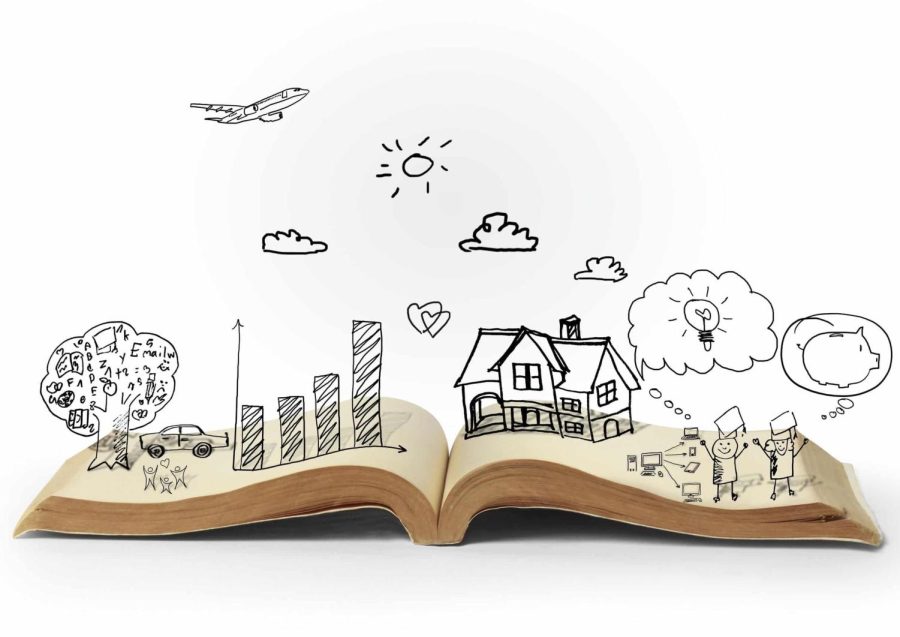Why Do We Care About Stories?
It is no secret that fiction is a pillar of our society.
February 18, 2023
We long to feel.
People read a novel and see themselves in it, immerse themselves in fantastic worlds, and watch shows and movies to see a lonely pair finding love—to be comforted, to be a part of something, and to feel loved. This human need to “feel”—the need to submerge oneself in emotions, that is—can be satisfied through none other than fiction.
Fiction(/ˈfikSHən/), can refer mainly to two things: a form of literature that describes imaginary events and people, or more broadly, something that is invented.
The wider definition of fiction can refer to anything that is invented, and so we may not realize fiction’s impact in our everyday lives. In this sense, fiction can refer to social constructs such as corporations, governments, or nations; intangible concepts that make up our everyday lives. In his book Sapiens, Yuval Noah Harari talks about the ability of Homo sapiens to create fiction, and how “the ability to create an imagined reality out of words enabled large numbers of strangers to cooperate effectively.” Essentially, a made-up belief shared amongst the majority—say, the law—has helped humans create a more organized and stable society.
Let’s take this article, for example. The letters in this article on their own do not carry any significant meaning. They are only symbols organized in specific ways and combinations that come together to form sentences and paragraphs. To a dog, these symbols mean absolutely nothing. However, it is because of the shared promises that a language has that it all makes sense, and hence why this article carries any meaning. Language, in a sense, is fiction that helps society function.
Language, which is fiction, can come together to form a different type of fiction: fiction in the form of literature. Fiction in the form of literature is something that has been around humankind for a long, long time. From creation stories to mythologies, from plays to novels to film, the presence of such stories is clear throughout the course of history. For years and years we have been consuming fiction to feel. But an important aspect of fiction is that it is all imaginary. The tragedy of Romeo and Juliet, the fall and redemption of Darth Vader, or the magic of Hogwarts all have one thing in common. They never existed. No, they were only conjured up from the human brain. Yet we become so attached to these characters and root for their success. But why is that so? Why do we fall in love with mere figments of imagination?
Naturally, if we are presented with characters that have flaws, we see the characters change and develop and we feel a sense of pride for them. We form a bond with them and long to see them change for the better because we’ve come to know them. This helps us see what they see and feel what they feel. The need to feel can be satisfied by these imaginary characters and walking the journey alongside them. We adventure Middle-earth with the Fellowship of the Ring, experience the LA landscape in La La Land, and feel the fate of the galaxy is in our hands all because of the bonds we form with fiction.
We might not realize it, but fiction makes up so much of the world we live in. It is quite a marvel to think that when we read a book or watch a movie, we are perceiving a specific order of letters and words with made-up meanings that allow a soul to feel all sorts of things; love, sorrow, and bliss. Fiction is a source of emotion that we can plunge into freely in order to quench our thirst to feel. Throughout history and in society, fiction has always been and always will be with us, helping us grow.
